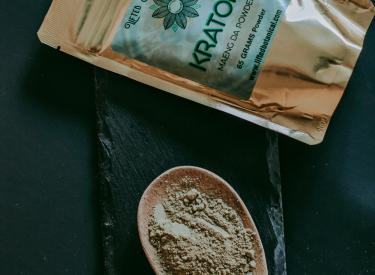
What to Remember During Residential Treatment
Every American is impacted by the COVID-19 (coronavirus) outbreak, and families and individuals affected by addiction will face even greater challenges during this time. Now more than ever, it is important to seek treatment when you or your loved one is ready. Consider what treatment options may be most appropriate, and if you or your loved one is preparing for residential treatment, the tips below may be helpful.
As both a clinician in a residential treatment facility and a supporter of my mother’s residential treatment journey, I know that a main source of apprehension for many addiction patients is uncertainty over what to expect.
I have 10 beneficial things that I encourage all of my clients to consider when they are here that may similarly help you or your loved one in the journey of recovery in a treatment setting. While there are plenty of things that I have missed, I believe that these tips can help any person have a smoother transition into a residential facility.
#1: Do this for yourself or it will be in vain.
People go to treatment facilities for many different reasons. Sometimes, treatment is court-ordered or urged by employers or family members. The push may come from an external motivator, but ultimately, you've got to identify an internal motivator to set yourself up for success.
#2: Collaborate with your primary support and set boundaries.
Many times, when you finally make the decision to go to treatment, your family or loved ones are rooting for you—potentially for their own selfish reasons. For example, if you have been the primary breadwinner, these loved ones may want you to enter recovery so you can go back to being the breadwinner. In instances like this or similar situations, it may be important for you to create a boundary from your loved ones to allow yourself time to heal and get yourself together.
While 28 days in treatment is very valuable for some, it is not the fix for your life and most times it will take more than 28 days to adjust to being a productive member of society. If you find that you are having a difficult time readjusting due to consequences from your past behaviors, set boundaries to protect yourself. Do not allow your family or close friends to stress your recovery process with demands that are for their benefit. They can be patient and allow you to heal so that your recovery will be successful.
#3: Request resources for your loved ones.
Your loved ones need and deserve healing, too. Even though they may not have addiction, they have likely experienced trauma from your addiction. Invite them to participate in family therapy at your program, or encourage them to find a support group to attend while you are in treatment if family therapy is not available. Some great resources for families include Al-Anon, PAL (Parents of Addicted Loved Ones), Co-Dependency Support Groups, and many more.
#4: Be honest.
Honesty is the best way to make it. Follow program rules and if you do happen to break a rule, be honest, and accept the consequence. If you aren’t open and honest, your recovery will suffer. Secrets keep you sick and will prevent you from getting the healing you need. But transparency will help you recover.
#5 Be friendly—but understand you’re not there to make friends.
It is great if you go to treatment and meet someone that you have a great connection with, but remember that your main goal is not to create friendships or relationships with others. Your focus should be working on the relationship with yourself so that you can have more positive relationships with others.
#6 Utilize all staff to your advantage.
Ask questions, get resources or referrals, and get educated. You are your best advocate and if you have a need while you are in treatment, utilize the staff to assist you with that need. You have every right to ask for referrals to services, like mental health care, childcare, or employment assistance. Program staff may not have the information, but perhaps they can refer you to someone who does. Either way, you won’t know if you’re not vocal about your needs.
#7 Ask about aftercare at the beginning of your treatment.
To help your recovery journey be successful, you should ask for information about the steps you'll need to take following your treatment program. Knowing what to expect later can help you during your residential stay.
#8 Be aware of possibly switching addictions.
Be careful about putting too much focus on another activity that may become addictive: sex, smoking, gambling. Remember to be honest and transparent. Let program staff know everything that could be an issue for you, while you have the support.
#9 Take suggestions.
You may not agree with everything that you're told, but it is important to be openminded and to take suggestions from others. Remember, you don’t have to do this alone, but if you are closed off, you will be doing this alone.
#10 Identify a support system
Whether it is a higher power, a favorite book, the voice of a loved one, a personal mantra, you'll greatly benefit from a guiding source of support. Seek the strength you need to get through each day.
Emily George Tilley is a mother, wife, daughter, sister, friend, and a Licensed Clinical Social Worker pursuing a Doctorate in Social Work. She is passionate about making a difference in people’s lives and being a mentor to new professionals in the field.



